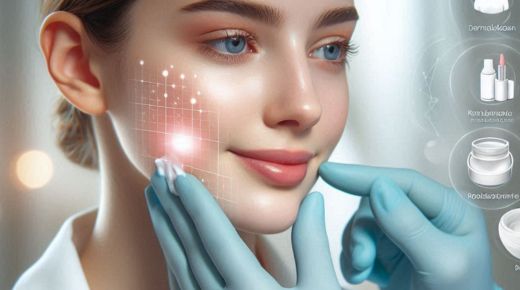
Acne is a common skin condition that affects many people, but the aftermath—acne scars—can be frustrating and difficult to deal with. Whether you’ve dealt with occasional breakouts or severe acne, scars can leave lasting marks on your skin, affecting both its texture and tone. The good news is that with the right approach, you can treat acne scars and even prevent new ones from forming. Here’s a guide on how to achieve clear skin by treating and preventing acne scars.
1. Understand the Types of Acne Scars
Before treating acne scars, it’s important to understand the different types. Acne scars typically fall into two categories:
- Atrophic scars: These are depressed scars that occur when the skin doesn’t produce enough collagen as it heals. They include ice-pick scars, boxcar scars, and rolling scars.
- Hypertrophic scars: These are raised scars caused by excess collagen production during the healing process. They often appear as thick, raised bumps on the skin.
Identifying the type of acne scars you have will help you choose the right treatment to achieve the best results.
2. Use Topical Treatments for Acne Scars
There are several topical treatments available that can help reduce the appearance of acne scars over time. Some of the most effective ingredients include:
- Retinoids: Retinoids are derivatives of vitamin A and are highly effective at boosting cell turnover and collagen production. This helps reduce the appearance of atrophic scars and smooth out uneven skin texture. Start with a retinol or ask your dermatologist for prescription-strength tretinoin for more significant results.
- Vitamin C: A potent antioxidant, vitamin C brightens dark spots and helps fade post-inflammatory hyperpigmentation products, which can linger after acne has healed. It also promotes collagen synthesis, helping to smooth out depressed scars.
- Niacinamide vitamin B3 for face: Known for its anti-inflammatory and skin-brightening properties, niacinamide helps fade dark spots left behind by acne and supports skin barrier repair.
- Alpha-hydroxy acids (AHAs): AHAs like glycolic and lactic acid exfoliate the skin, removing dead skin cells and encouraging new cell growth. This helps reduce the appearance of both discoloration and textured scars over time.
3. In-Office Treatments for Deeper Scars
For deeper or more severe acne scars, in-office treatments performed by dermatologists can provide faster, more dramatic results. Some of the most effective treatments for acne scars include:
- Laser therapy: Laser treatments like fractional laser resurfacing or CO2 laser work by removing the outer layers of skin, stimulating collagen production, and improving skin texture. Laser therapy is especially effective for atrophic scars.
- Microneedling: Microneedling involves creating tiny micro-injuries in the skin using a device with fine needles. These micro-injuries stimulate the skin’s healing process and encourage collagen production, which helps smooth out depressed scars.
- Chemical peels: A chemical peel involves applying a chemical solution to the skin that causes the outer layer to peel off, revealing smoother, clearer skin underneath. Chemical peels are particularly effective for hyperpigmentation and mild acne scars.
- Dermal fillers: For severe atrophic scars, dermal fillers can be injected to plump up depressed areas, improving the skin’s texture and reducing the appearance of scars.
4. Preventing Acne Scars
Preventing acne scars starts with effective acne management. Here are some tips to prevent new scars from forming:
- Avoid picking or popping pimples: Squeezing or picking at acne can worsen inflammation and increase the risk of scarring. Resist the urge to touch or pop your pimples, as this can cause permanent damage to the skin.
- Treat acne early: The sooner you treat acne, the less likely it is to result in scarring. Use gentle, acne-fighting ingredients like salicylic acid, benzoyl peroxide, or retinoids to manage breakouts and prevent scarring.
- Wear sunscreen: Sun exposure can make acne scars and hyperpigmentation worse by darkening the affected areas. Protect your skin by using a broad-spectrum sunscreen with at least SPF 30 every day, even when indoors.
- Hydrate and moisturize: Keeping your skin moisturized supports its natural healing process and prevents scarring. Look for non-comedogenic moisturizers that won’t clog pores.
5. Be Patient and Consistent
Treating acne scars takes time, and results won’t happen overnight. Be consistent with your skincare routine, and remember that many treatments, particularly topical ones, can take several months to show visible improvement. Stick with your routine, and consider consulting a dermatologist if you’re not seeing the progress you expect.
Treating and preventing acne scars requires a mix of targeted topical treatments and, for more severe cases, professional procedures. By understanding the type of scars you have and incorporating the right ingredients like retinoids, vitamin C serums, and AHAs, you can gradually improve your skin’s texture and tone. Additionally, taking steps to prevent acne scars, such as managing acne early and wearing sunscreen, will help you maintain clear skin over time. Patience and consistency are key, but with the right approach, you can achieve smoother, more radiant skin.






